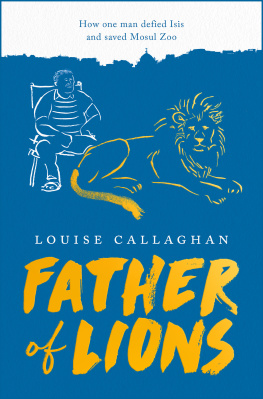Contents
About the Book
Xiaomei Martell was born on the borders of the Mongolian steppes just two years before Mao launched the Cultural Revolution that was to change China forever. The youngest of four daughters her name translates as Little Sister her family had few material goods and, following the untimely death of her father, none of the vital connections needed to safeguard their futures, yet despite this her family and neighbours raised her with a thirst for knowledge and a love of food, ranging from the lions head meatballs her Uncle Deng cooked to the phoenix feet that apparently cured wrinkles, by way of hundred-year-old eggs.
Full of quirky facts did you know that the Chinese say aubergine when their photo is taken? and fascinating episodes like the Small New Year, a prelude to the official New Year where houses are spring cleaned and offerings are made to the Heavenly God of Cooking, this is a unique and engaging account of a culture and cuisine that is a world away from the China we know today.
About the Author
Xiaomei Martell was born in 1964 in Inner Mongolia, one of Chinas most remote regions, and spent her formative years there during the Cultural Revolution. After winning a coveted university place at the age of fifteen, she went to study English and then art in Beijing, where she also worked after graduation, teaching English, acting as a travel guide and working for art galleries. She came to England in the late 1980s to pursue her studies and has lived in England ever since.
To my mother
Food to Celebrate
THE KING PRAWNS are almost too good for sweet and sour. Freshly caught in the Yellow Sea that morning, they sit beautifully on an equally beautiful bone-china plate. Amid the symphony of chopping, chatting and the clattering of pans and woks comes the scent of fresh coriander, toasted chilli and a mixture of ginger, spring onion and garlic. The star anise wafts through from a pot of mouth-watering tender beef from the cattle bred on the lush steppes of Inner Mongolia.
This is one of the very few birthday celebrations we have had for my mother, soon to be 80. In fact, we have only started to celebrate her birthday recently. My lasting memory of a birthday celebration when my sisters and I were young, was for the birthday girl to have two eggs and the other siblings to have one each. In Meilings case, as her birthday falls in July, she was able to have two juicy peaches, instead of eggs. Meiling, a born fruit lover, ate her peaches avidly but was very careful not to waste any. Her bright, almond-shaped eyes sometimes betrayed a little guilt as she spotted me watching her eating her second peach. Have a small bite, she would offer, holding her peach close to my mouth with an air of indulgence from an elder sibling who would proudly tell everybody she was not just one year older, but one and a half years older than me. Embarrassed but very tempted, I would take a small bite, just a little in front of her two fingers that were holding the peach tight, the unspoken line that I should not pass. My mother often skipped the eggs and the peaches, in the same way that she skipped her birthday. Not that she was not fond of such treats for eggs and peaches were treats when I was young nor that she could not bear the thought of her advancing years, she simply wanted to save the eggs and peaches for us, her brood of four daughters.
Having four daughters is not particularly something my parents should have had a reason to celebrate, not where we were, a Chinese city on the borders of the Mongolian steppes. As a child, I liked the sound of Huhehot, the name of our city, which meant Green Town in Mongolian. It sounded particularly alluring when Mongolians pronounced it in their resonant voices, and I occasionally imitated the Mongolians, only to be teased by my sisters. Sometimes I used to feel that it was a little unfair when adults referred to our city, the capital city of Inner Mongolia, as a small city, almost with the implication that it was remote and less developed than other Chinese cities or even somewhat backward.
Unlike boys, girls cannot pass on the family name. Boys are yours, girls are somebody elses, Madam Guan, our next-door neighbour, lamented when her eldest daughter got married and moved in with her in-laws. This was what people did at that time. As a child, I could not understand why Madam Guan was not more pleased when her daughter left. After all, their cramped mid-terrace house, a three-room one-storey house similar to ours, would be a little less crowded with only seven remaining children. But what do you know, you are only a young girl, little No. 4, a thin and stern-looking Madam Guan sighed, her tobacco-stained front teeth seeming to protrude more than ever, emphasising her last word. I rolled my eyes at her in frustration, to the amusement of her eighth child, or No. 8. Apart from anything else, I hated being referred to in such a way, a local custom commonly used by rather uneducated people. Her name means Little Sister, Meiling would often take the opportunity to lecture Madam Guan on my name. Madam Guan was about as literate as an average ten-year-old, but that doesnt mean she was not smart she was pretty streetwise. In spite of her fierce appearance and straight talking, Mother said that she was really quite kind. She often had a chat with my mother over the fence under our apricot tree which bore small, sharp fruits. Having fruits from our tree was delightful, though it became a centre of attention for a group of local boys who had broken many branches stealing our fruit before it even had a chance to become ripe. My parents loved trees, particularly my mother, who often talked, with a touch of nostalgia, about the wisteria and the lilac tree in the garden of the courtyard house she grew up in. A wasted horticultural talent, I heard Madam Guan saying on more than one occasion when she saw my mother explaining to us the shapes of plant leaves or taking us to flower shows in the parks. My parents also planted a poplar tree and a lilac tree in our front garden, or the courtyard as we sometimes grandly called it.
Being a girl, I should do less talking and more cooking, Madam Guan told me. At least, I should start to learn. It was laughable for a girl not to be able to cook, not to mention the prospect of not turning out to be a good wife. But there was little to cook with because of the rationing. Even the best housewife struggles to cook without rice, Meiling came to my defence by repeating an old saying she had picked up somewhere, probably from Madam Guan herself.
I was born into rationing. Rationing was introduced across China after three difficult years triggered by natural disasters and poor economic planning in the late 1950s and early 60s. In spite of the rationing, my parents celebrated my arrival on the shortest day in 1964 with jiaozi, bite-sized dumplings and a festival food often linked to the Chinese New Year. Little sister, little sister, dumplings will give you perfect ears, five-year-old Yan hopped around me, with the excitement of a somewhat boisterous elder sister. She constantly touched my small nose, which still bore a trace of the snowflakes that had fallen on me when my father picked my mother and me up earlier from the hospital in a pedicab, quite a luxury in our city at that time. She was chanting a popular rhyme which, I later learnt, was about the local custom of eating dumplings on the shortest day of the year, said to protect the ears from freezing in the cold weather ahead. Thinking about it now, I am not certain whether my parents were true followers of such customs, but I am pretty sure that they would only be too pleased that the dumplings, a delicious treat, killed two birds with one stone.
Next page













